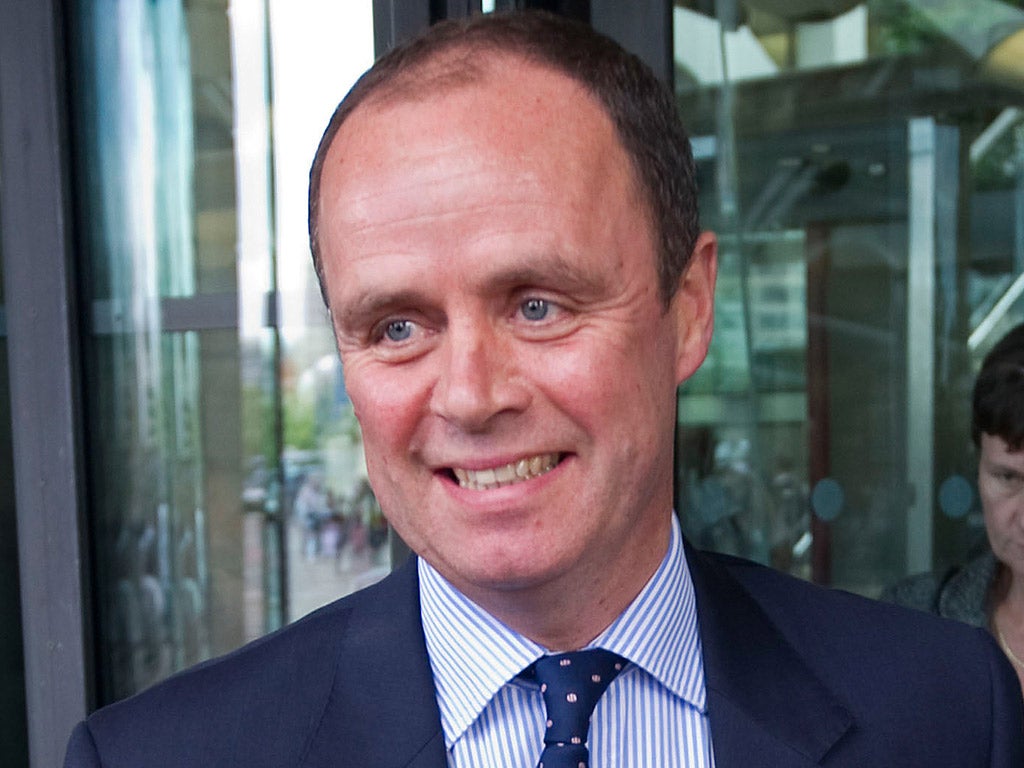Ex-police chief's 'safer than London' claim pours fuel on fire of Bahrain GP anger

Bahraini opposition activists have lambasted a former British police chief who suggested that the Gulf kingdom is now safer than London, pointing out that extra-judicial killings, torture and kidnappings have continued since he was hired to reform the nation's security forces.
John Yates, the former Metropolitan police chief who was heavily criticised for his handling of the investigation into phone hacking by News of the World journalists, began working as an advisor by the al-Khalifa dynasty in December.
He and former Miami police chief John Timoney are tasked with reforming the country's security services after more than a year of civil violence sparked by pro-democracy protests.
In recent weeks the Formula 1 franchise has been under increasing pressure to cancel this month's Grand Prix on 22 April. Opposition groups point to continued repression of predominantly Shia protest groups in the Sunni-led kingdom and the refusal by the authorities to allow prominent activist and hunger striker Abdulhadi al-Khawaja to return to Denmark, where he has citizenship, as reasons for cancelling the race.
However in a letter to FIA boss Jean Todt, the head of the sport's governing body, Mr Yates urged teams to travel to the kingdom stating that his family felt safer in Manama than in London. In the letter dated 11 April, Mr Yates recognised that "nightly skirmishes" in Bahraini villages were a cause for concern but he added that social media often "overplayed" the nature of the violence inside the kingdom.
"I feel completely safe," he wrote. "Indeed, safer than I have often felt in London."
Opposition groups and human rights activists condemned his comments, stating that violence from security forces was still commonplace despite the Gulf state's public commitment to bring in reform. Maryam al-Khawaja, the daughter of Abdulhadi al-Khawaja and a member of the Bahraini Centre for Human Rights, told The Independent: "Before he says Bahrain is safer than the UK John Yates should spend some time in the villages that are tear gassed every night by the security forces. He should sit down with the families who have lost children that have been shot in the head. He should speak to those who lost and eye or a leg, or were the victims of psychological, physical and sexual violence at the hands of the country's security forces. Then he can come out and make these kinds of statements with authority."
In November the Bahraini government promised to make significant reforms after an independent investigation, known as the BICI report, found widespread torture in Bahrain's security forces. Mr Yates was hired by the King of Bahrain weeks later to advise on how to implement these reforms.
But human rights groups say there has been little change in the behaviour of the security forces since Mr Yates and Mr Timoney were brought in.
Last month the Bahrain Centre for Human Rights published a report looking at violence inside the kingdom since November, finding at least 30 cases where people had died after confrontations with police or security forces and one incident where a woman had been killed after being attacked by protesters. Examples they describe include Sayed Hashim, 14, who bled to death on New Year's Eve after being struck in the neck by a tear gas canister and 22-year-old Fadhel al-Obaidy who died on 1 March after being hit on the head by a tear gas shell. Most of the other victims reportedly died after inhaling tear gas, which is regularly fired into troublesome neighbourhoods outside the capital Manama.
The Bahraini government says it is committed to reform and is fighting opposition groups funded from abroad.
The upcoming Grand Prix has become something of a political minefield. Bernie Ecclestone, the sport's ringmaster, moved yesterday to quell the speculation that the grand prix will not go ahead next week, ahead of a meeting later today between himself and the 12 teams. "I'm meeting the teams on unrelated matters," he said. "There's nothing about Bahrain, or Barcelona or Monaco or anywhere. The race is on the calendar. Unless it gets withdrawn by the national sporting authority in the country, we will be there. I don't see any difference between here and Bahrain. It's the same. It's another race on the calendar."
So which is safer? Bahrain vs London
Population
Taken on raw statistics it is difficult to compare Bahrain and London. One is a socially conservative and comparatively homogeneous Arab island with a population of 1.2m – the other is a leading multicultural global city with more than 7.5m inhabitants from around the world.
Crime
Statistically, Londoners are less likely to be a victim of violent crime than they were 10 years ago. But perception of crime remains high and victims of knife and gun crime are getting younger. Until last year Bahrain was a comparatively safe country with low crime rates.
Civil unrest
London had three nights of rioting last summer; Bahrain has been beset by unrest for the best part of a year. While our police have been criticised for treading too softly, Bahrainis use tear gas, rubber bullets and live rounds. Torture, kidnappings and extra-judicial killings by state security forces have been well documented.
Subscribe to Independent Premium to bookmark this article
Want to bookmark your favourite articles and stories to read or reference later? Start your Independent Premium subscription today.

Join our commenting forum
Join thought-provoking conversations, follow other Independent readers and see their replies